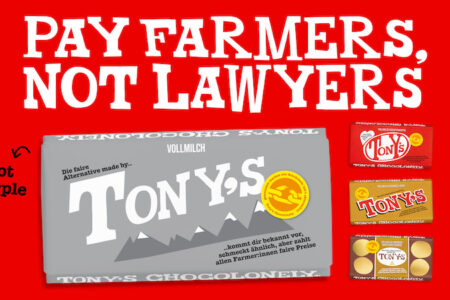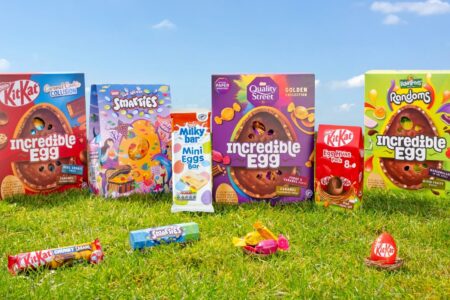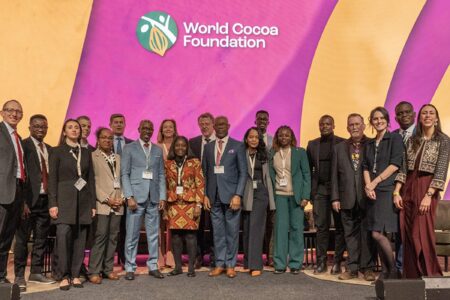International team assembles for global chocolate scorecard on ethical sourcing

Dark chocolate stack, chips and powder
A British-based Open University academic has joined an international team aiming to educated consumers on delivering ethically produced confectionery through producing the latest global chocolate scorecard, reports Neill Barston.
Dr Cristiana Bernardi, a Senior Lecturer in Accounting and Financial Management in the OU’s Business School, has teamed up with industry professionals and non-profit making organisations for the annual initiative.
From a total of 38 companies under the microscope, ethically-founded confectionery companies Beyond Good and Alter Eco emerged with the highest possible ratings across transparency and traceability, living income provision, child labour measures, deforestation and climate considerations, agroforestry and agrichemical management.
Other highly-rated businesses included Tony’s Chocolonely, New Zealand’s Whittakers Chocolates, and Ferrero rounding out the top five performers. These were followed by Nestlé, Chocolate Halba, Fazer, Olam (processor), and ETG Beyond Beans Export Trading Group making up the top ten.
Among the lowest rated companies in the annual study were Japanese-headquartered manufacturers Glico and Morinaga, Kellogg’s and Daito Cacao company, which were all said to require improvements to match the majority of industry’s performance on sustainability targets.
Speaking on the latest scorecard, Dr Bernardi noted that most of the world’s chocolate is made from cocoa beans sourced in West Africa, particularly the Ivory Coast and Ghana. She said: “What people don’t see is the supply chain that goes into the production of your chocolate bar and that can involve child labour and exploitation.”
In order to develop the scorecard, the team – led by the Australian charity Be Slavery Free and in collaboration with 20 other non-government organisations – reached out to chocolate companies around the world to contribute information through a combination of surveys, interviews and self-reporting.
Those involved included Dr John Dumay, Professor of Accounting and Finance at Macquarie University, and Dr Stephanie Perkiss, a Senior Lecturer in Accounting from the University of Wollongong (UOW), in Australia, to shine a spotlight on what, exactly, consumers are getting when they buy their favourite chocolate.
Dr Bernardi said: “Chocolate has never been in such high demand. In addition to being one of the most loved foods, the word chocolate evokes plenty of our memories and traditions: chocolate on Valentine’s Day, chocolate at Easter, chocolate as a thank you or a way to let someone know you are thinking of them. Chocolate is our modern love drug. Nevertheless, consumers rarely consider the cocoa supply chain that leads to their favourite chocolate.”
Since The Chocolate Scorecard was first introduced around five years ago, the focus on transparency and the international spotlight on these practices has led to change in the industry.
Carolyn Kitto, Co-Director of Be Slavery Free, noted that the campaign had had a tangible impact on communities and the cocoa supply chain. She said: “The cocoa industry is a real concern in the fight to end modern slavery. But this campaign is enabling change. Chocolate manufacturers tell us this scorecard is helping to impact their strategic direction.
“This scorecard is helping to address the issue of child labour and slavery in the cocoa industry. This campaign asks for companies to ensure farmers in their supply chains receive a living income. This means children will be going to school because they don’t have to work on cocoa farms.
“We are seeing processes being improved, an end to deforestation and the beginning of a switch to sustainable practices, which, ultimately, will improve productivity.”
However, there is a still a way to go to ensuring good practices are ingrained within the cocoa industry and companies are transparent about their practices and supply chains.
Dr Bernardi concluded: “In trying to address these issues, Mars and Nestlé have pledged to make their cocoa supply chain sustainable by 2025. Ferrero has committed to sourcing 100% sustainable cocoa beans by 2020, and Mondelēz aims to reduce greenhouse gas emissions by 10% by 2025, based on 2018 levels, and these are just a few examples of change in the industry.
“As important as it is to be aware of where your chocolate comes this Easter, sustainability and slavery are issues around all the time. By supporting chocolate manufacturers who are engaging in best practices, we can influence change.”



